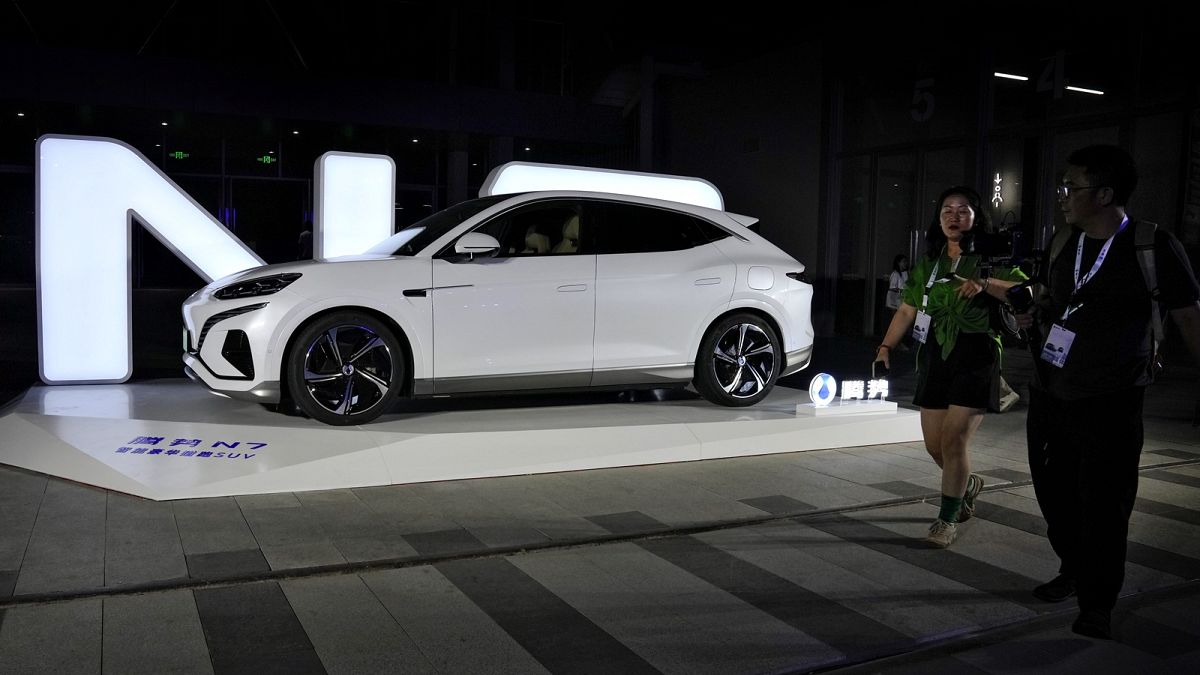- cross-posted to:
- [email protected]
- cross-posted to:
- [email protected]
cross-posted from: https://feddit.org/post/3451147
European Union countries failed to agree on whether to slap China-made electric vehicles (EVs) with steeper tariffs during a closely watched vote that ended with too many abstentions, forcing the European Commission to overcome the political impasse and push its proposal over the finish line.
The outcome of Friday’s vote was not publicly available, although several diplomats told Euronews how each member state positioned itself:
- 10 were in favour: Bulgaria, Denmark, Estonia, France, Ireland, Italy, Lithuania, Latvia, the Netherlands and Poland. (45.99% of the EU population)
- 12 abstained: Belgium, the Czech Republic, Greece, Spain, Croatia, Cyprus, Luxembourg, Austria, Portugal, Romania, Sweden and Finland. (31.36%)
- Five were against: Germany, Hungary, Malta, Slovenia and Slovakia. (22.65%)
The high number of abstentions reflects long-standing qualms about how Europe should stand up to China. Although the political consensus says that Beijing’s unfair trade practices merit a forceful, united response, threats of commercial retaliation appear to have dampened the resolve of many capitals as the make-or-break date neared closer.
It was up to the Commission, which has exclusive powers to set the bloc’s commercial policy, to break the gridlock and ensure the duties go through.
EU approves steep tariffs on Chinese electric vehicles
European Union countries failed to agree on whether…
So… which is it?
Both? It’s pretty well explained in the rest of the text (you don’t even have to click a link)
It was up to the Commission, which has exclusive powers to set the bloc’s commercial policy, to break the gridlock and ensure the duties go through.
The European Commission made the decision after the member countries failed to agree on how to proceed.
My gut feeling is that that’s not a smart move …
Yeah, on the one hand it seems pretty clear that they’re trying to prevent competition/disruption and protect domestic car manufacturers’ sales. On the other hand, I don’t think I want China to end up with a monopoly on EVs.
Between a rock and a hard place, as they say.
If their EVs are so good/affordable that it would destroy all domestic EV car competition, couldn’t non-chinese car companies just make better/more affordable EVs? Nah, gotta side with automotive corporations and against consumer choice.
This is the kind of garbage move that creates things like the Chicken Tax in the US, which is a big reason Americans drive around tanks now instead of regular sized pick-up trucks.
couldn’t non-chinese car companies just make better/more affordable EVs?
If we assume they actually were that affordable in reality, then the answer would be yes.
The accusation is that the Chinese government is financing and supporting their domestic EV manufacturers in an effort to artificially lower their prices to levels no other manufacturer could ever match in an effort to dominate the market and remove all competition - at which point they could increase their prices drastically and recover the “investment” as there would be no-one else left to compete.If it’s true or not, I can’t say, I haven’t researched the subject enough. Those votes at least showcase that there is no clear consensus about it.
There’s also the factor that China controls the largest “rare earth” mines which are the raw materials for battery manufacturing. Right now, a lot of non-chinese EV companies source their battery materials from China, who will obviously always give their domestic market an anti-competative advantage over any other country.
BYD is also a battery company that makes cars. They can afford to lose a little on the car, when they make money overall.
I mean, this strategy exists for a lot of consumer industries, right? Sell at a loss for years to flood the market, then once people are bought in and competition is left scrambling to catch up or worse, jack up the prices to start making a profit. But preventing competition so you can sustain a jacked up automobile market is also anti-consumer especially if domestic car companies are making record profit margins in the meantime. But this is the EU and I’m from the US where consumer protections are laughable, so maybe vehicles are actually affordable over there and this would be a good decision.
couldn’t non-chinese car companies just make better/more affordable EVs?
Sure, if China didn’t control the battery market.
threats of commercial retaliation appear to have dampened the resolve
A few days ago I saw an interview with an EU official (I don’t remember who) which gave interesting insight.
They pointed out that they’re talking with China about these tariffs, that they’re taking a proof-based approach on them, reasoning and justifying with evidence of unfair subsidies, and that China has accepted such tariffs in the past for other things.
Collecting and discussing evidence obviously takes more time. But it defuses the “I put tariffs on you” -> “then I put tariffs on you” into a “these unjust subsidies were in place so we have to add these tariffs” -> “I don’t like it but I see”.
I wonder how those talks turned out, given that the tariffs have now been set. I guess I will hear from China if they object.






